Food is the source of energy for the body. Healthy food plays an important role in maintaining an energetic and healthy body in seniors. Eating the right kinds of food can leave you with more energy, help to keep diseases at bay, and even manage a healthy weight. And while eating a healthy diet is great for everyone, it’s particularly crucial for seniors as diet plays an important role in keeping them as fit and healthy as possible.
So, what food is good for the elderly? In this blog post, we take a look at healthy foods that seniors can enjoy on a daily basis.
Here is a list of veggies that are good for seniors:
Green leafy vegetables:
Green leafy vegetables like spinach, amaranth, malabar spinach, microgreens, cabbage, lettuce, and other leafy greens are packed with nutrients and antioxidants.
Moreover, leafy greens are low in calories as they are mostly made of nutrients, fiber, and water. So, they are considered as one of the good foods for losing weight.

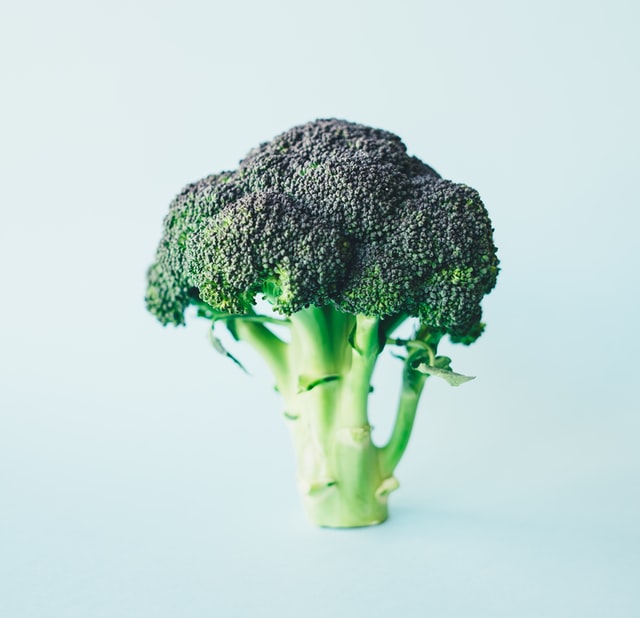
Broccoli:
Broccoli is high in fiber and antioxidants, and also contains various vitamins like vitamin A, C, B9, and K. Broccoli is good for seniors as it keeps bones healthy and helps to ward off diseases.
Broccoli is incredibly beneficial to the elderly’s health because it is high in iron, protein, calcium, vitamin A, carbs, and vitamin C, among other nutrients. Broccoli can help seniors to avoid heart disease, vision problems, digestive issues, and diabetes.
Sweet potatoes:
Sweet potatoes are a versatile food that can be served as an appetizer, side dish, or dessert. They are high in antioxidants and are generally easy to digest. Additionally, sweet potatoes are high in potassium. They promote heart health because potassium helps seniors maintain appropriate blood pressure, heart function, and electrolyte levels in the cells.
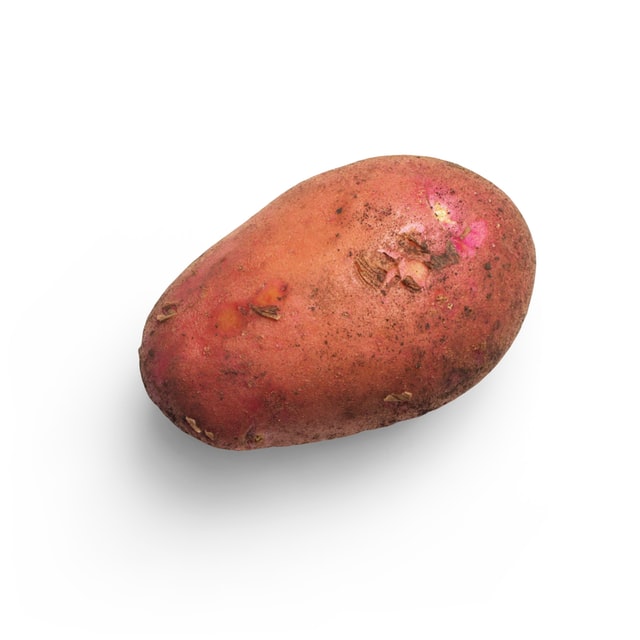

Beans:
Beans are one of the superfoods which help in decreasing the chances of developing diabetes. Antioxidants, fiber, protein, vitamin B, iron, magnesium, potassium, copper, and zinc are all found in beans.
Beans contain amino acids in them. Amino acids are the protein building blocks that the body needs to heal and create new tissues like bone, muscle, hair, skin, and blood.
Beetroot:
Beetroots are highly nutritious and have a sweet taste. They can be added to salads, sandwiches, soups, and cooked dishes to enhance the taste. Beetroots are one of the most nutrient-dense foods on the planet.
Their dark red color indicates that they contain betalain pigments and they act as antioxidants and detoxifying agents. Additionally, beetroots are rich in iron, folate (vitamin B9), manganese, vitamin C, magnesium, phosphorus, and fiber.
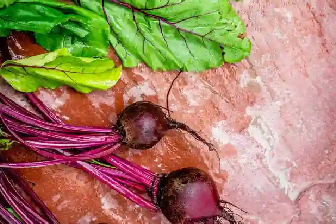
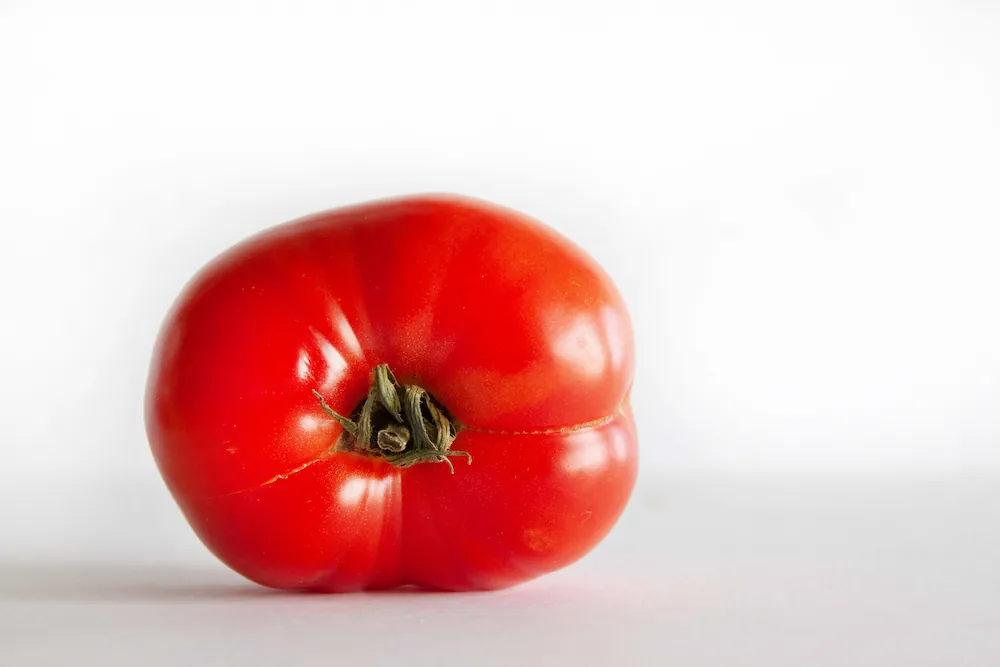
Tomatoes:
Tomatoes are a great source of vitamins A and C, and they’re also loaded with lycopene, a powerful antioxidant. Moreover, according to the National Cancer Institute, some studies have found that tomatoes may reduce the risk of certain cancers. (Source: https://academic.oup.com/jnci/article/91/4/317/2543924?login=true )
Pumpkin:
The benefits of eating pumpkins as a healthy food for seniors are plentiful. Pumpkin’s fiber content helps seniors maintain healthy digestive systems, and even prevent or reduce constipation.
Pumpkin is also an excellent source of vitamin A, which is essential for eye health and sharp vision. The fruit’s high water content keeps skin hydrated and youthful as well.


Carrots:
Carrots are one of the best vegetables to eat for seniors. They can help prevent macular degeneration, which is a leading cause of blindness in older people. Carrots also help the immune system ward off viruses and bacteria that cause colds, ear infections and pneumonia.
Furthermore, carrots are packed with vitamin C and beta-carotene, which acts as an anti-inflammatory and has antioxidant properties that can help protect your body from certain cancers. Finally, the high amount of fiber in carrots is beneficial for seniors who suffer from constipation or digestive issues because it helps regulate bowel movements.
Bell peppers:
Seniors can benefit from eating bell peppers because they’re low in calories and rich in nutrients. They come in different colors, including red, yellow, orange, and green. Bell peppers have a high vitamin C content.
Vitamin C is critical to the healthy functioning of your body’s immune system and helps to prevent common cold. Bell peppers contain plenty of antioxidant vitamins, which can help to lower blood pressure and reduce the risk of developing heart disease.
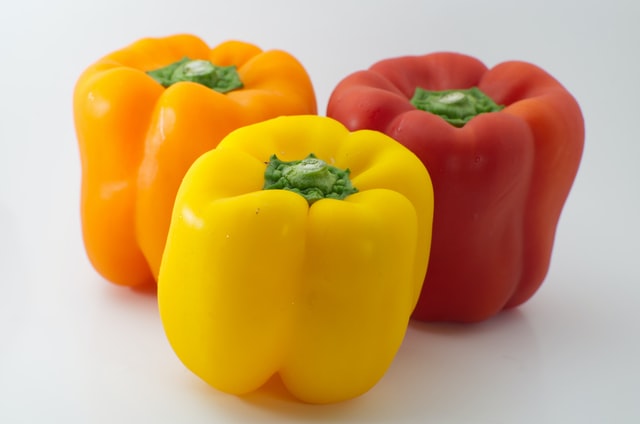
Here is a list of fruits that are good for seniors

Oranges:
As we get older, our nutritional needs change. We need fewer calories and more nutrients. Oranges can be part of a healthy diet for seniors, as they are naturally low in fat, sodium, and cholesterol. Oranges are rich in fiber, folate, and vitamin C. They also contain other nutrients essential for good health.
Bananas:
Bananas are one of the great food for seniors because they’re easy to chew, rich in vitamins and minerals that are essential for older people, and low in cholesterol. They’re also inexpensive and can be incorporated easily into a variety of meals or eaten as a healthy snack.

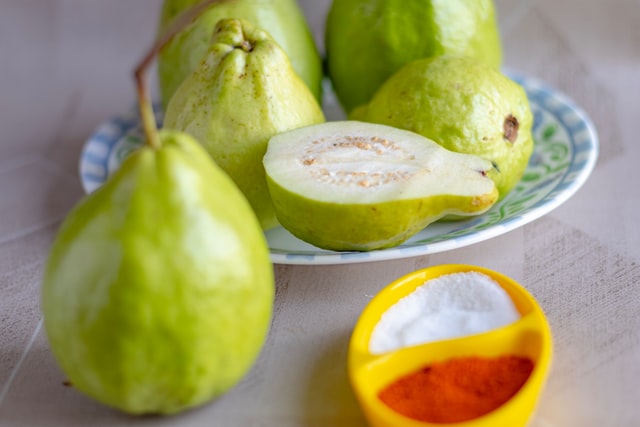
Guava:
Guava juice is good for the elderly because it has a high content of vitamin A, which can help prevent some common eye problems that affect the elderly, such as cataracts and glaucoma.
The high content of vitamin C also helps prevent other neurological diseases that may affect the elderly. Other benefits of guavas include their ability to aid in weight loss, lower blood pressure and improve digestion.
Kiwi:
Kiwi fruit is a good source of vitamin C, dietary fiber, and vitamin K. It also provides us with a range of other nutrients, including potassium, folate, beta-carotene, vitamin E, and lutein. It contains less sugar than other fruits. As it is rich in potassium and magnesium, it helps in controlling blood pressure.
Kiwi fruit is low in calories and fat, hence it’s one of those fruits which aids in weight loss. It is a good source of minerals like zinc, iron, copper, manganese, and phosphorus. The high levels of vitamin C in kiwi can help reduce the severity of colds in some individuals. The immune system needs this nutrient to function properly.


Pomegranates:
Like many other fruits, pomegranates are high in antioxidants and minerals that help your body to fight off disease. They are one of the best fruits for old age. Pomegranates are especially beneficial for seniors because they can help with joint pain and mobility.
They can also protect against heart disease and diabetes, which is essential for seniors. This fruit has also been found to prevent memory loss and reduce blood pressure.
Avocado:
The benefits of eating avocado for seniors are many. Avocado is one of those superfoods that can lower cholesterol and help reduce the risk of heart disease. The potassium in avocados is especially beneficial to seniors with high blood pressure, as it helps lower blood pressure naturally.
Avocado also helps improve circulation, which is important for reducing inflammation. Avocados are an excellent source of vitamins B6 and C, both necessary for healthy skin and hair.

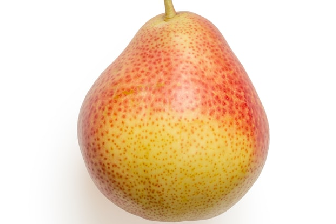
Pears:
Pears are high in dietary fiber. Eating plenty of fiber is important for seniors because it helps prevent constipation, reduce cholesterol levels, and lower your risk for heart disease. A pear is a low-fat fruit that provides a good source of dietary fiber.
Pears deliver a high content of vitamins, minerals, and antioxidants. They provide essential nutrients to help reduce the risk of developing chronic diseases.
Apples:
Apples are a tasty and nutritious snack and they are healthy food for seniors. Apples are packed with fiber and antioxidants, which are useful nutrients for seniors that support long-term health and wellness.
Apples are rich in fiber and low in calories. One medium-sized apple has only 95 calories so they can be a healthy snack if you want to lose weight or maintain your current weight.


Berries:
Eating berries may be one of the best ways to get important nutrients and antioxidants into your diet. The health benefits are extraordinary, and they’re also easy to eat and enjoy. If you like blueberries, strawberries, raspberries, and blackberries, you can buy them fresh or dried. Mix into a fruit salad or eat them plain. You can even add them to oatmeal or yogurt for a delicious snack.
Grapes:
Grapes can be a great snack for seniors because they have a lot of antioxidants and anti-inflammatory properties. The anti-inflammatory properties make them very beneficial to seniors who suffer from arthritis and joint pain.
They also contain a high amount of potassium, which helps to regulate blood pressure and improve circulation throughout the body.
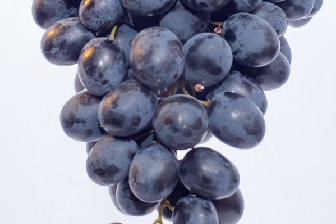
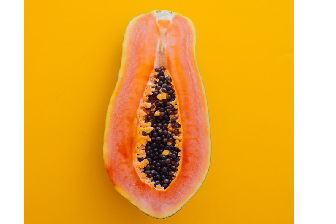
Papaya:
Papaya is a tropical fruit that has several health benefits, particularly for seniors. The fruit also contains essential nutrients like vitamin A, vitamin B9, potassium, and magnesium. Furthermore, papayas are low in calories, fat, and sodium. They contain no cholesterol and are a good source of dietary fiber.
Below is a list of quick and easy nutritious meals for seniors:
Khichdi:
The combination of rice, lentils and ghee makes Khichdi a wholesome meal that provides carbohydrates, proteins, dietary fiber, vitamin C, calcium, magnesium, phosphorus, and potassium. Vegetables are often added to it to enhance its nutritional value. Additionally, it is also a good meal to manage diabetes.
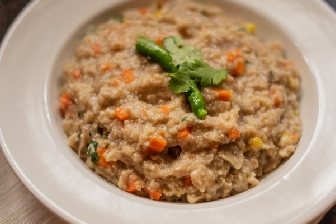
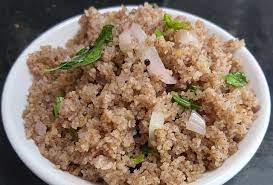
Ragi upma:
Ragi is a type of millet rich in calcium, iron, protein, fiber, and other minerals. It contains fiber that helps lower cholesterol and is easy to digest. Ragi can lower your body temperature on hot days and help you control your weight.
It also aids in bone strength for older people because of the calcium content. When you’re looking for a nutritious but quick meal, ragi upma is a great option.
Idli:
Idli is one of the healthiest and most nutritious breakfast options available. It is a soft, pillowy steamed dish made from fermented black lentils (urad dal) and rice. Usually served with coconut chutney or sambhar, idli has a high nutrient value which makes it an ideal breakfast option for people of all age groups, including seniors.
The fermentation process also enhances its nutritional value by increasing the absorption of nutrients like zinc, iron, magnesium, and folate.
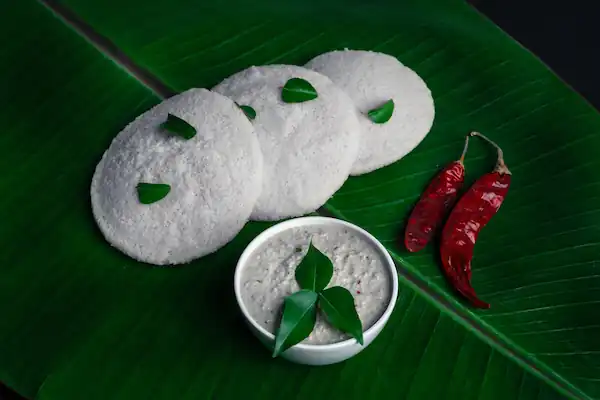
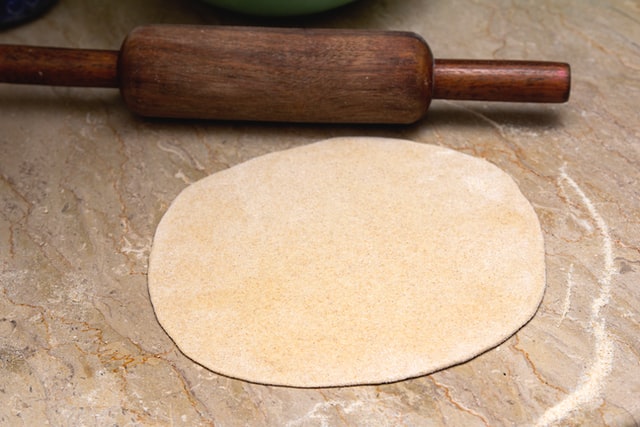
Wheat chapati:
Made of whole wheat flour and water, wheat chapatis are a healthy option for seniors. Wheat chapatis contain complex carbohydrates that provide energy. Moreover, they have a good amount of protein. A serving of four chapatis provides 12 percent of our recommended daily value for protein.(Source: https://prorganiq.com/blogs/new/benefits-of-eating-wheat-chapati )
Curd rice:
As curd rice has numerous benefits, it is considered one of the best meals for seniors. Curd is easy to chew and eat and it aids digestion. Curd has a lot of probiotics that promote the growth of healthy gut bacteria. This can help in relieving bloating and abdominal pain.
Curd also improves your immune system as it is a good source of vitamin B12, zinc, and iron. In addition, curd rice is also known to help maintain good cholesterol levels because it is a rich source of omega 3 fatty acids which help reduce bad cholesterol levels.
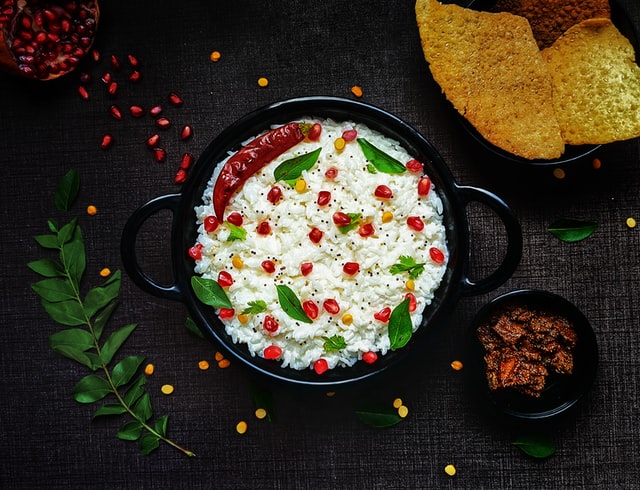
Bottomline
Many seniors can benefit from healthy eating habits. Eating healthy food maintains our overall health, well-being and promotes longevity. As we age, our bodies naturally become less resilient and require more care to maintain a healthy lifestyle. Healthy eating habits provide the seniors with the energy needed to live active and fulfilled lives in later years.

